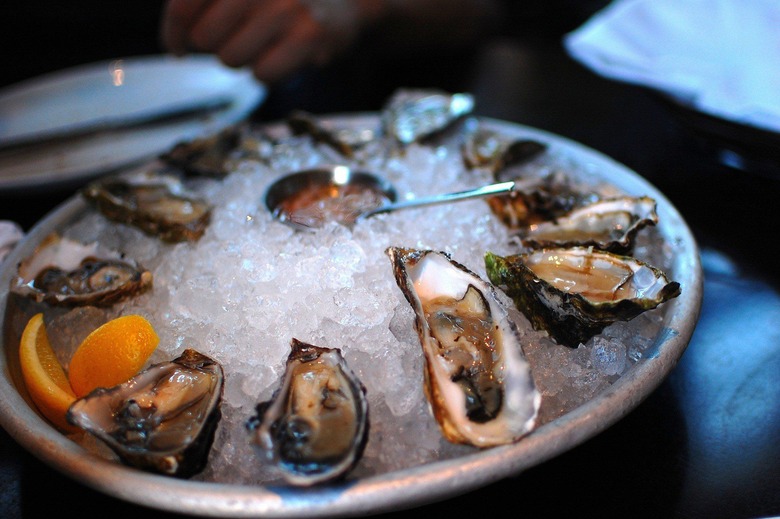Scientists Find 80 Percent Of Known Human Norovirus Mutations In Oysters
Oysters, especially when eaten raw, may be the reason behind the cruise lovers' curse, norovirus, finds a new study published in the journal of Applied and Environmental Microbiology.
Also known as the stomach flu, norovirus is among the world's most common types of gastrointestinal distress, and is transmitted when a person consumes food contaminated by stool or vomit from infected sources. Norovirus is highly contagious, especially in confined spaces such as a cruise ship, but the exact path of transmission is unclear.
Recently, however, scientists discovered that norovirus can easily infect others by traveling through the air in the same manner as droplets from a sneeze.
Moreover, oysters — an important part of most cruise ships' raw bars — seem to be especially guilty of harboring norovirus.
In the study, researchers analyzed 1,077 samples of known strains of norovirus found in oysters. Scientists found that among those samples, 80 percent of human noroviruses matched those found in oysters, the majority of which were identified in coastal waters, where contamination by human sewage is more common.
In addition, the team found a "related convergence" between oyster noroviruses and strains causing human outbreaks. "This suggests that oysters act not only as a vector of norovirus (NoV) by way of environmental transmission, but that they also serve as an important viral reservoir of human NoVs," the researchers wrote. "These results highlight the importance of oysters in the persistence and transmission of human NoVs in the environment, and have important implications for the surveillance of human NoVs in oyster samples."
